What are the pros of sleeping with a fan on all night?
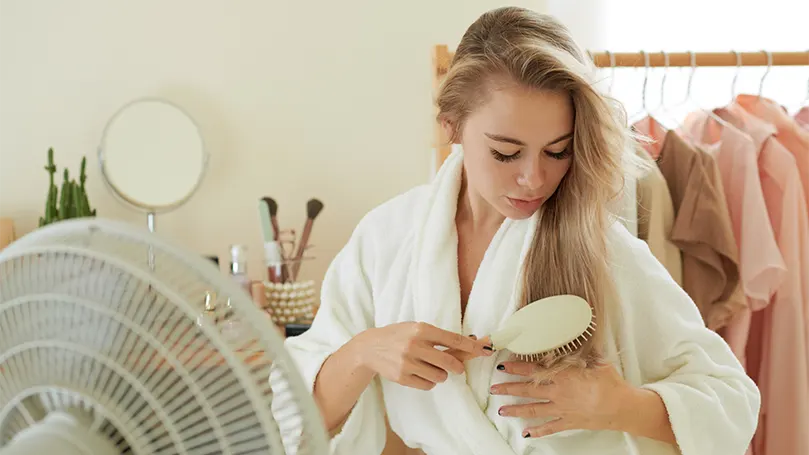
There are definitely a lot of pros of sleeping with a fan on all night. Many cannot fall asleep during hot and humid nights without a fan so they consider a fan a necessity rather than an amenity. A fan can prevent heat stroke and many other heat-related illnesses.
However, even at a smaller scale, it's just more comfortable to sleep in a cool room! But let's go into a little more detail and explain all of the benefits of sleeping with a fan on. And then we'll go into some of the potential negatives a bit later on.
Comfort & staying cool
Room temperature has a huge influence on sleep. Many benefits of sleeping in a cold room have been proven, but in summer it is not possible to maintain such a temperature even if you sleep naked. Nevertheless, the fan will definitely make the bedroom cooler and so you will be comfortable. Exactly how much a fan will be able to lower the room temperature depends on many factors such as blackout curtains, type of fan, windows and insulation of the house.
Boosted airflow
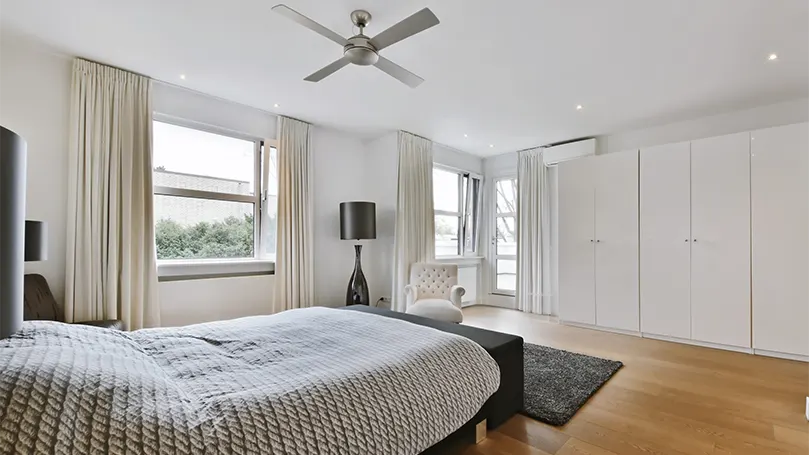
It's not just the temperature that matters. Sometimes it is even more pleasant for us to sleep in a warmer environment if the air is fresh and the airflow is undisturbed. A constant breeze is exactly the main reason why many people prefer fans over central air conditioners. Air circulation will neutralise unpleasant odours too.
And if you've ever tried to sleep in a stuffy room, we're sure that you'll know what we're talking about. No one likes stale air! And even if your windows are closed, a fan can at least keep the air moving and make you feel more refreshed.
Lower electricity bill
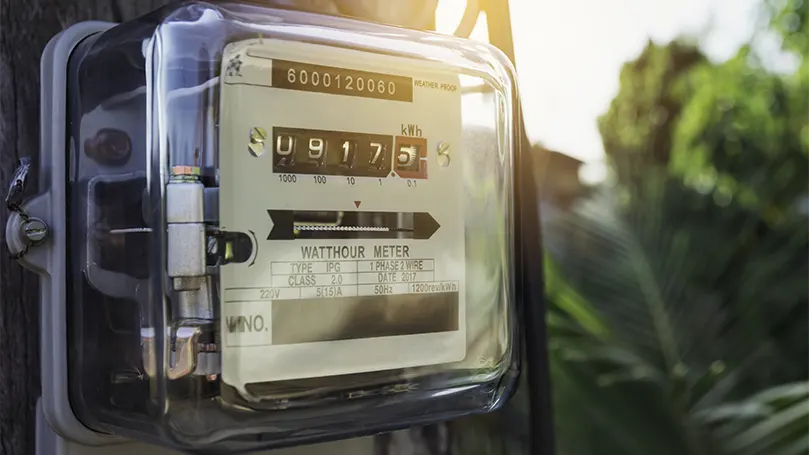
This may sound surprising to you, but think again. Although the fan will be on all night, it consumes significantly less electricity than the air conditioner. There are many ways you can further lower the temperature in the room, to be almost the same as when the air conditioner is active. One such way is to place frozen water bottles in front of a fan. A great example of energy efficiency plus money savings.
Of course, you'd save even more money by not having the fan or the AC on. However, if you're reading this article, we're going to assume that it's far too hot for that to be an option.
SIDS reduction
Sudden infant death syndrome (SIDS) is one of the biggest fears of all parents. This syndrome is totally unexplained and occurs in babies younger than one year. Research was conducted 15 years ago, and researchers later published an article claiming that fan use during sleep reduces the risk of sudden infant death syndrome (SIDS) in babies by more than 70 percent.
What are the cons of sleeping with a fan on all night?

Hot sleepers are ready to downplay the cons of sleeping with a fan on right away. While we can understand hot sleepers, as well as other people struggling to fall asleep in an environment that is not cool, one should not forget all the possible downsides, because some of them can be very serious.
That being said, we also don't want to be overly dramatic and create a fan boogyman! So, let's go over all of the potential downsides and then you can decide for yourself whether they're actually significant or not.
Possibly triggering allergies
Allergies are so common that we certainly don't need something that can further aggravate an allergic reaction. More than 25 percent of people in the UK have respiratory allergies and for each of them using a fan during the night can make problems worse. The fan circulates the air, and there is dust and pollen in the air, the two most common allergens. After you inhale the airborne allergen well-known symptoms like runny nose appear.
Nose congestion is imminent

Mucus is a fluid substance produced by tissue to protect and moisturise organs and in this case the nasal passages from drying out. The fan will cause the air to be dry, so the body producing excess mucous will be a direct response.
Too much mucus leads to a stuffy nose, snoring and similar problems. That's why a humidifier is necessary if you use a fan. And you can check out this article if you want to see our list of the best humidifiers.
Dry skin & eyes
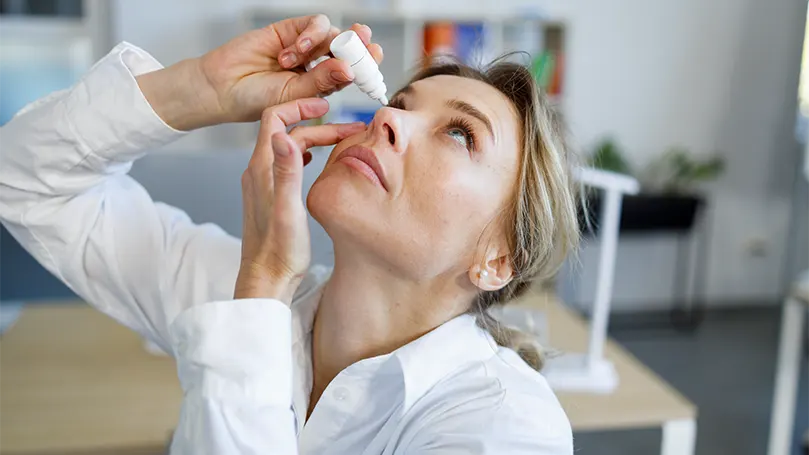
The same goes for skin and eyes. Dry air can cause itching, especially in those who have naturally dry skin. When eyes are dry, a burning sensation is inevitable. To prevent it, apply body lotion to the skin, and choose one which is oily, intended for dry skin. Eye drops can be very helpful both because of the fan and after many hours in front of the screen.
However, it's worth noting that these downsides mostly just apply if the fan is blowing straight at your face. If it's pointed at your back or off to the side, your eyes are less likely to be irritated.
How to make sleeping with a fan on all night better?
If you need a fan because you are a hot sleeper and you are also an allergy sufferer, then you are faced with the dilemma of what to do. Don’t despair, there are ways to minimise the negative effects of sleeping with the fan on. It is possible to enjoy all the benefits of a fan without having any related problems.
Air filters
Air filters are essential for allergy sufferers, but we recommend everyone use air filters for collecting dust. No one is immune to dust mites and other allergens in the air. Why risk allergies or just some symptoms of it when it is easy to prevent with the help of air filters?
Plus, it's always a good idea to keep your bed room nice and clean. And this applies to the air as well! You should check the air filter regularly and replace it when you notice that it is dirty.
A fan with a rotating base
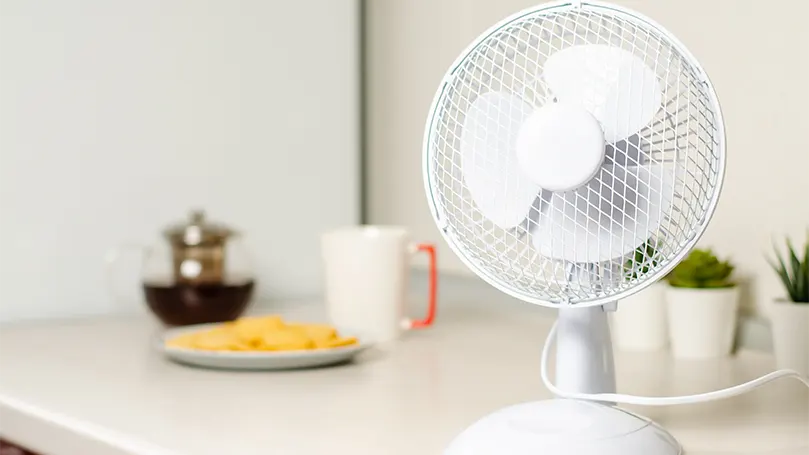
It is much healthier to sleep with a fan with a rotating base than with a fixed fan that constantly blows in only one direction. When it has a rotating base, you will avoid many of the downsides we talked about while enjoying the cool breeze. Airflow in several directions will not cause a stiff neck and shoulder, while the nose and eyes won’t be that dry.
Plus, getting a fan with a rotating base is rather easy. Even budget-friendly options typically have this option! And if you have a larger budget and want the best cooling fans, a rotating base is a given!
Keeping the fan at the distance
You need to keep the fan at least a meter away from you. The point is that the fan cools the air and makes the air fresh in the whole room, not blowing directly into you and causing many health problems. When we talk about a ceiling fan, it is best to avoid placing the bed directly under it. If you can't avoid that because the bedroom is small, then set the low speed.
Timer
We feel the heat until we fall asleep. Once we fall asleep, our body temperature naturally drops and we also stop being aware of the environment. Therefore, except when it is 40 degrees C outside, it is not necessary for the fan to be on all night. Use the timer and set it to turn off in an hour or two. That will be more than enough and you will save even more electricity.
What type of fan is best for running all night?
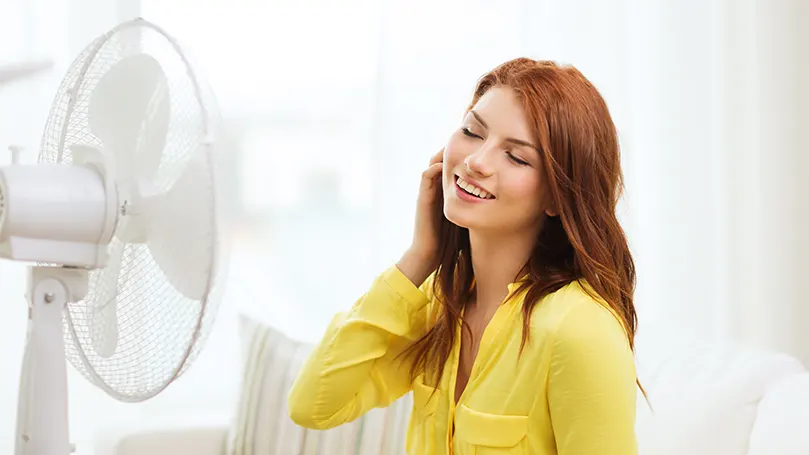
We can’t say that one type of fan is perfect for running all night. Generally, each type can work all night, so the choice depends on your preferences. We advise you to buy a portable one instead of a ceiling one because you will be able to place it at a sufficient distance so that air circulation would not bother you.
Also, a fan that blows in multiple directions is a better choice than a fixed one. The timer option is very useful. Choose one that is easy to disassemble so you can regularly clean the blades and the whole fan. If you leave dust on the blades, that dust will end up in the air and then in your nose and mouth.
How to stay cool at night without running a fan?
Fan and air conditioning are certainly not the only two ways to be comfortable sleeping even during the summer. If you have allergies, you do not like the white noise that the fan produces or you want to avoid dry air, there are certainly other ways to cool down before bed.
Cooling mattress
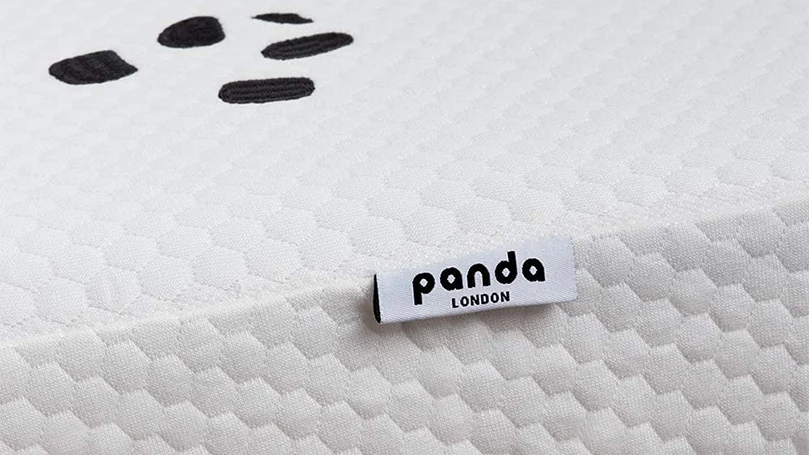
Many believe that cooling mattress is the most important because if the mattress has a problem with heat retention, a fan will not help you either. Choose a breathable mattress. Memory foam mattresses have a bad reputation, but new types of foam plus breathable covers and air vents solve this problem.
If you do not want memory foam, then it is even easier to find a breathable mattress, for example, a hybrid one. In case your mattress is comfortable and you do not want to change it, but it is too hot, buy cooling mattress toppers.
Cooling pyjamas
You should avoid polyester and similar materials when choosing pyjamas. Polyester is hot and unpleasant for the skin. It will irritate you. Pyjamas must be made of cotton, bamboo, eucalyptus, linen or silk to be cooling. Also, such pyjamas are soft and cosy.
For summer, choose a loose one. This way you can stop your pyjamas from sticking to your skin and making you hotter than you'd like to be. Wash it every few days to keep it clean from sweat.
Hot bath before bed
Sounds weird and counterproductive, right? But try and see for yourself. A hot bath will raise your body temperature and then you will have the feeling that the environment is colder than it really is. Take a hot bath about half an hour before bed to avoid sweating. Also turn off the fan for an hour to avoid muscle pain.
Cold cloth on your head
Hot sleepers may opt for this approach as last resort. Place a cotton cloth in the refrigerator or freezer and then place it on your head. However this can cause headaches.
Conclusion – to sleep or not to sleep with a fan on all night?
There is no one correct answer to the question of whether or not to sleep with a fan all night. It depends. There are plenty of pros and cons. So it is up to you to decide what is the best option for you. It is certain that the fan will help you cool the room and will prevent stale air. These two things must have a positive effect on night's sleep.
However, concentrated cool air also brings with it concentrated allergens since there is not just air around. That is why this is not a good option for those who suffer from allergies. Also stuffy nose, headache, neck pain and stiff or sore muscles are possible.
Practically one answer is to try and judge for yourself whether it is useful for you to sleep with a fan. For a start, do check the best cooling fans to keep yourself cool. Also, take other steps to cool down – buy a cooling mattress, pillow, duvet and pyjamas, and take a warm hot before bed. And do feel free to let us know in the comments whether sleeping with a fan on all night is part of your bedtime routine!
Spread the word
Recommended reading:

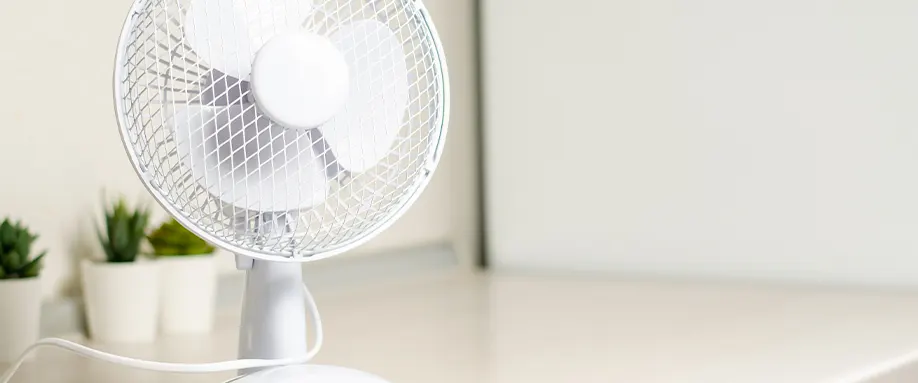













There are no comments yet
"*" indicates required fields